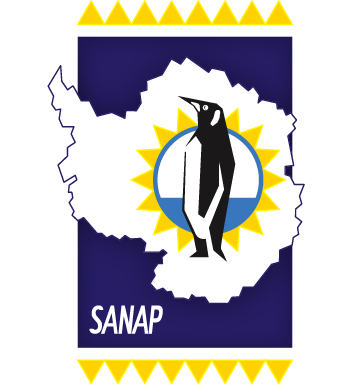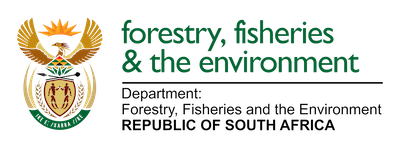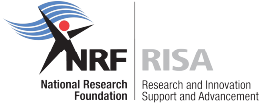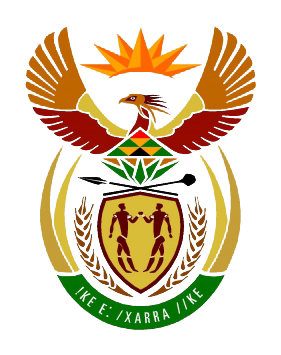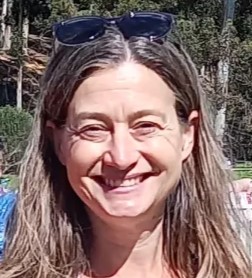
by Ria Olivier | Feb 29, 2024 | Biogeochemistry, geochemistry, Research, SA Agulhas II, SANAP, SANAP Student, South Atlantic, Southern Ocean
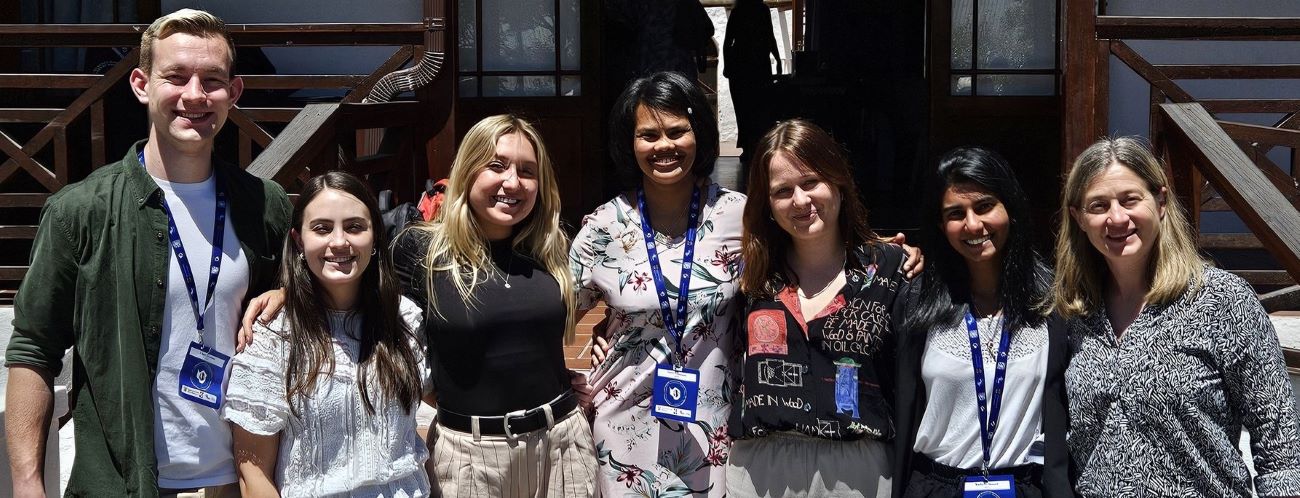
 The third session within the Marine and Antarctic Research Strategy research theme: Oceans and marine ecosystems under global change chaired by Suzanne Fietz of Stellenbosch University. The presentations resort under the title ‘Southern Ocean productivity: drivers and consequences. The session was introduced by Susanne Fietz and the alignment to MARS. (Above: group photo – Photo credit Suzanne Fietz)
The third session within the Marine and Antarctic Research Strategy research theme: Oceans and marine ecosystems under global change chaired by Suzanne Fietz of Stellenbosch University. The presentations resort under the title ‘Southern Ocean productivity: drivers and consequences. The session was introduced by Susanne Fietz and the alignment to MARS. (Above: group photo – Photo credit Suzanne Fietz)
 Above (l-r): Liam Quinlan, Emtia Wium, Johan Viljoen, Asmita Singh, Jared Walsh (Stellenbosch University)
Above (l-r): Liam Quinlan, Emtia Wium, Johan Viljoen, Asmita Singh, Jared Walsh (Stellenbosch University)
- Liam Quinlan: Characterising phytoplankton communities: A Southern Ocean case study of environmental coupling. (Abstract)
- Amelia Deary: Early community development at the Southern Ocean Marginal Ice Zone. (Abstract)
- Sadiyah Rawat: The role of the island mass effect in enhancing productivity and carbon export in the Subantarctic Ocean. (Abstract)
- Emtia Wium: Impact of metals in aerosols and dust on marine phytoplankton: South Africa. (Abstract)
- Sina Wallschuss: The seasonality and origins of nitrous oxide in the Atlantic sector of the Southern Ocean. (Abstract)
- Faith February: Observations of Southern Ocean marine aerosols in Simon’s Town, False Bay. (Abstract)
- Susanne Fietz: General discussion
- Mhlangabezi Mdutyana: Nitrification in the Southern Ocean: controls, kinetics, and biogeochemical implications. (Abstract)
- Susanne Fietz: Trace metals and phytoplankton. (Abstract)
 Above (l-r): Amelia Deary, Sadiyah Rawat, Sina Wallschuss, Faith February, Mhlangabezi Mdutyana (UCT)
Above (l-r): Amelia Deary, Sadiyah Rawat, Sina Wallschuss, Faith February, Mhlangabezi Mdutyana (UCT)
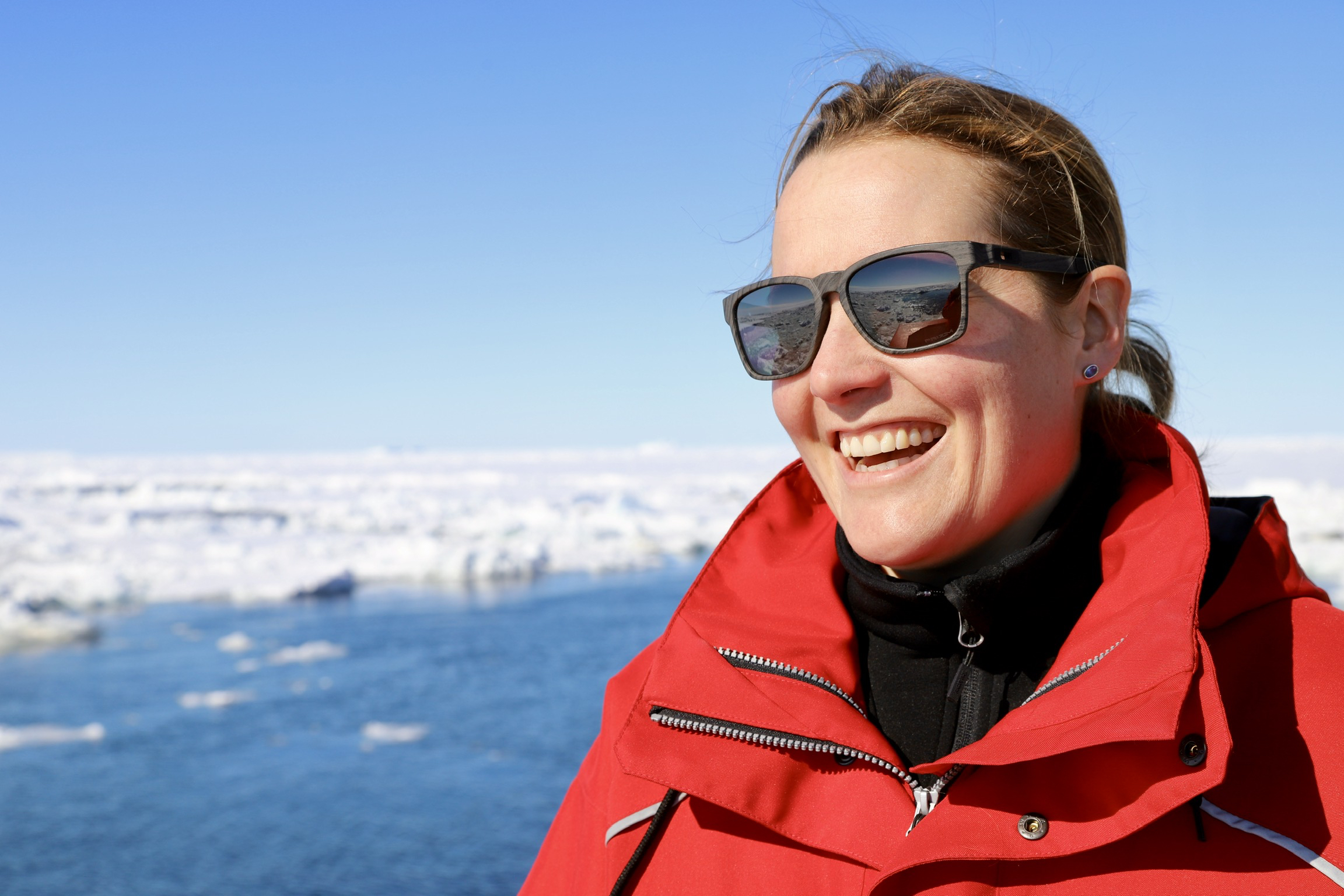
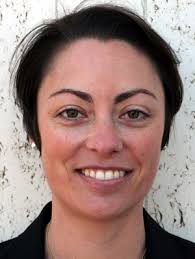 Sarah Fawcett(left) could not attend, but her and Dr Katye Altieri (right)students gave presentations during this session. Sarah Fawcett (abstract): Nanoplankton: the dominant vector for carbon export across the Atlantic Southern Ocean in spring.
Sarah Fawcett(left) could not attend, but her and Dr Katye Altieri (right)students gave presentations during this session. Sarah Fawcett (abstract): Nanoplankton: the dominant vector for carbon export across the Atlantic Southern Ocean in spring.
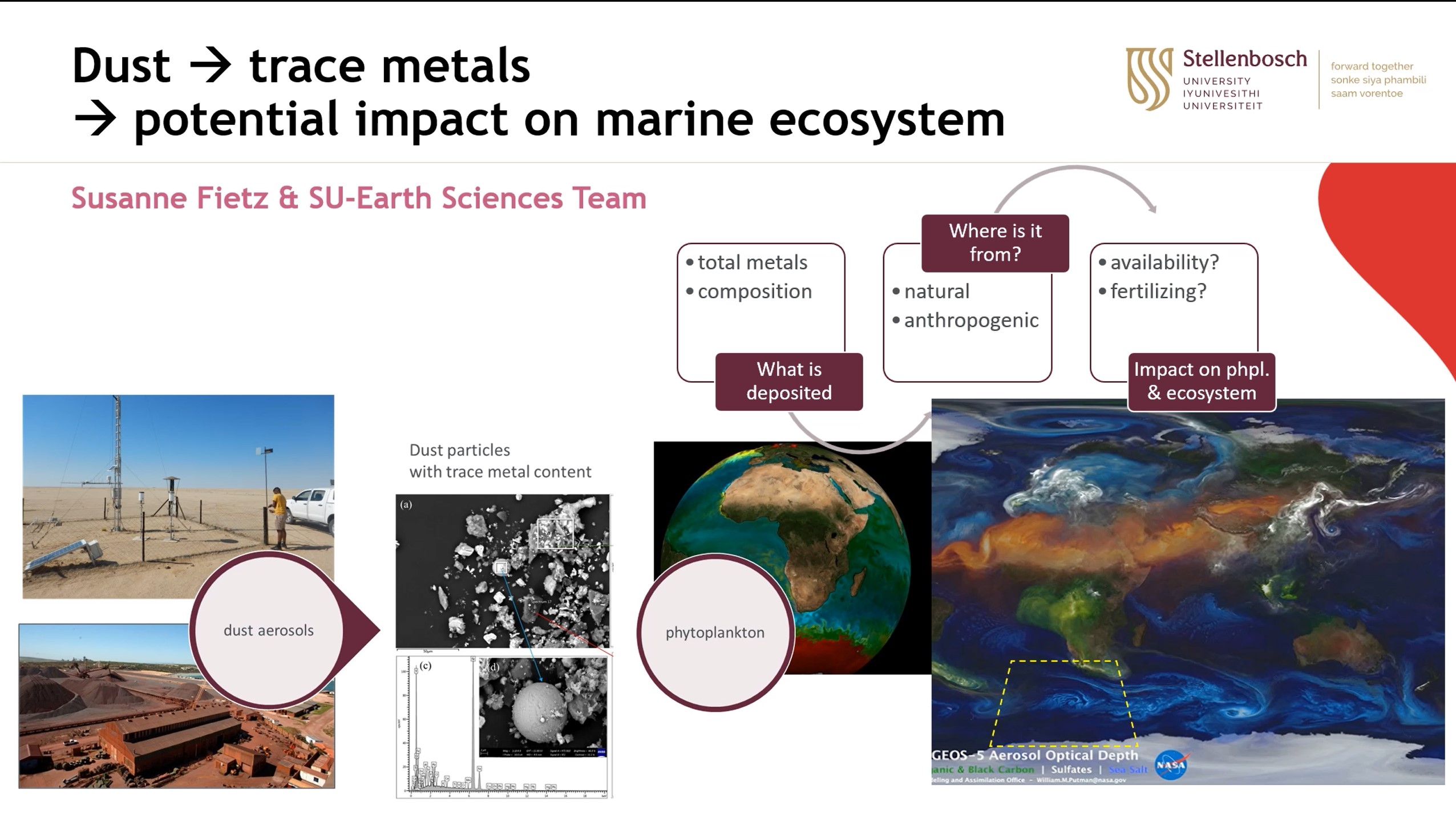 Suzanne Fietz and the Stellenbosch University Earth Sciences team submitted an excellent e-poster Asmita Singh(e-poster) and Johan Viljoen (abstract) and Jared Walsh(abstract) were not able to attend the symposium in person.
Suzanne Fietz and the Stellenbosch University Earth Sciences team submitted an excellent e-poster Asmita Singh(e-poster) and Johan Viljoen (abstract) and Jared Walsh(abstract) were not able to attend the symposium in person.
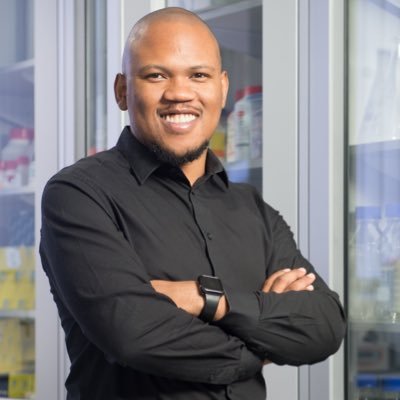
by Ria Olivier | Feb 24, 2023 | Announcement, Biogeochemistry, Environment, Microbiology, News, Research, SANAP, Science
Mayibongwe Buthelezi, a PhD student from University of Pretoria, is currently participating in the 30th Atlantic Meridional Transect cruise (AMT-30).
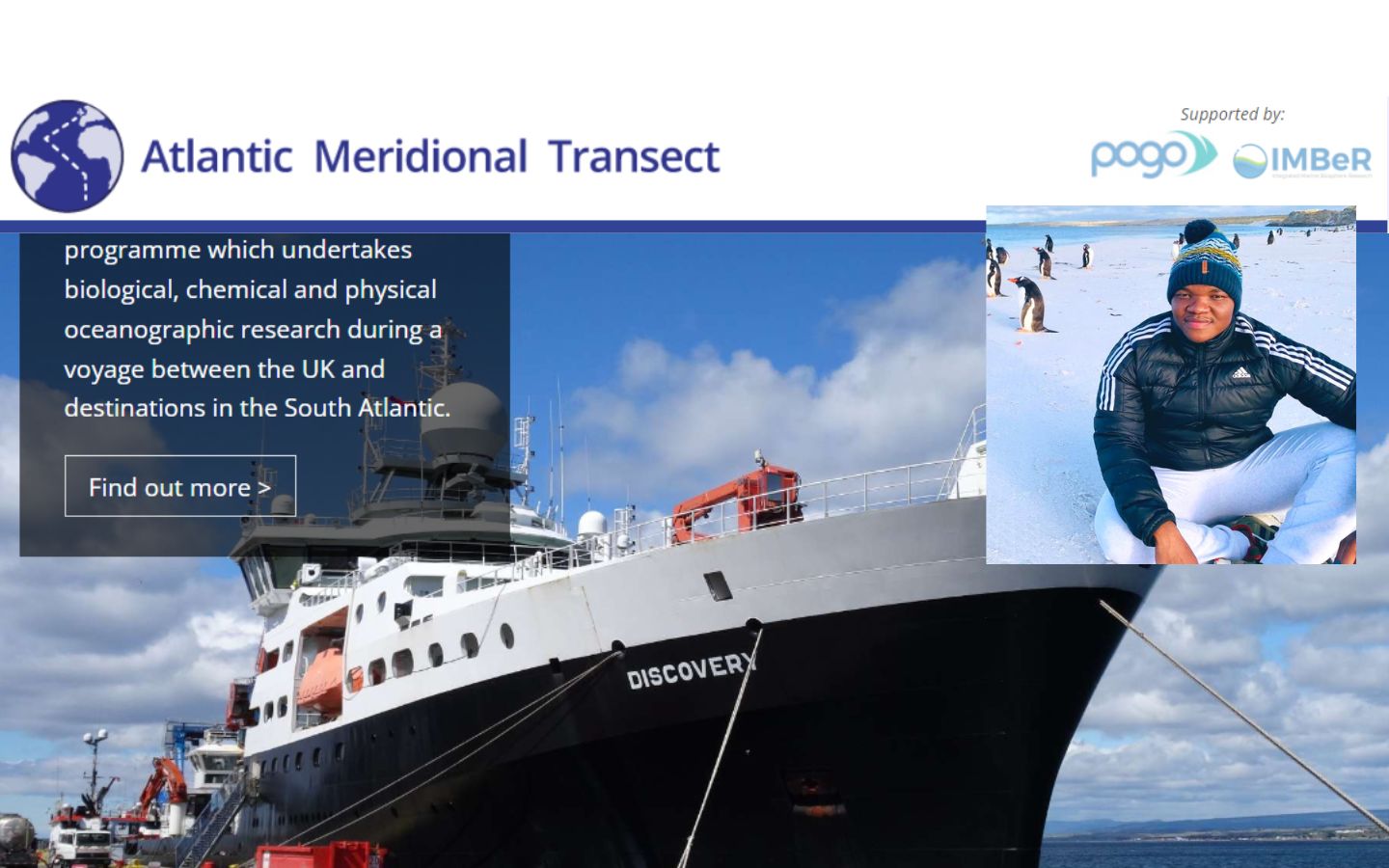
The AMT (Atlantic Meridional Transect) cruises are a series of research voyages conducted annually across the Atlantic Ocean, from the UK to the Caribbean, to study the ocean’s biogeochemistry, ecology, and physical properties. The cruises are multidisciplinary and include scientists from around the world. As part of the cruise, samples are collected at multiple depths and locations along the transect (read more about AMT here and here).

SANAP Project Involved: Enhanced insights regarding the ecology, evolution and function of marine microbiomes
Project Principal Investigator: Prof Thulani P. Makhalanyane
The South African Research Chairs Initiative (SARChI) Chair in Marine Microbiomics has a SANAP funded project focused on understanding microbiomes in the Southern Ocean and South Atlantic. The project titled “Enhanced insights regarding the ecology, evolution and function of marine microbiomes.” As part of this project, we have initiated a series of collaborative activities to access and join international cruises through the EU funded AtlantECO program.
Mayibongwe Butlelezi, a NRF/SANAP funded PhD student from the University of Pretoria, was selected to join this 6-week cruise aboard the Discovery. AMT30 has departed from the Falkland Islands on 21 February 2023. As far as we know, Mayi is the sole South African representee on the cruise. His project is focused on understanding the role played by marine microorganisms in the sulphur cycle. Specifically, Mayi will collect samples using protocols developed as part of the AtlantECO project to study microbiomes along the water column and to specifically quantify DMSP (Dimethylsulfoniopropionate).
Follow the work of Prof Makhalanyane and his team on Twitter:
 @microbiomeUP
@microbiomeUP
What’s happening on social media:
Text: Prof Thulani P. Makhalanyane, Department of Biochemistry, Genetics and Microbiology, University of Pretoria.
Images: amt-uk.org, @Thuls_M and @microbiomeUP
Edited: Anche Louw, South African Polar Research Infrastructure (Data, Products & Society Node), 24 February 2023.


 The third session within the Marine and Antarctic Research Strategy research theme: Oceans and marine ecosystems under global change chaired by Suzanne Fietz of Stellenbosch University. The presentations resort under the title ‘Southern Ocean productivity: drivers and consequences. The session was introduced by Susanne Fietz and the alignment to MARS. (Above: group photo – Photo credit Suzanne Fietz)
The third session within the Marine and Antarctic Research Strategy research theme: Oceans and marine ecosystems under global change chaired by Suzanne Fietz of Stellenbosch University. The presentations resort under the title ‘Southern Ocean productivity: drivers and consequences. The session was introduced by Susanne Fietz and the alignment to MARS. (Above: group photo – Photo credit Suzanne Fietz) Above (l-r): Liam Quinlan, Emtia Wium, Johan Viljoen, Asmita Singh, Jared Walsh (Stellenbosch University)
Above (l-r): Liam Quinlan, Emtia Wium, Johan Viljoen, Asmita Singh, Jared Walsh (Stellenbosch University) Above (l-r): Amelia Deary, Sadiyah Rawat, Sina Wallschuss, Faith February, Mhlangabezi Mdutyana (UCT)
Above (l-r): Amelia Deary, Sadiyah Rawat, Sina Wallschuss, Faith February, Mhlangabezi Mdutyana (UCT)
 Sarah Fawcett(left) could not attend, but her and Dr Katye Altieri (right)students gave presentations during this session. Sarah Fawcett (abstract): Nanoplankton: the dominant vector for carbon export across the Atlantic Southern Ocean in spring.
Sarah Fawcett(left) could not attend, but her and Dr Katye Altieri (right)students gave presentations during this session. Sarah Fawcett (abstract): Nanoplankton: the dominant vector for carbon export across the Atlantic Southern Ocean in spring. Suzanne Fietz and the Stellenbosch University Earth Sciences team submitted an excellent e-poster Asmita Singh(e-poster) and Johan Viljoen (abstract) and Jared Walsh(abstract) were not able to attend the symposium in person.
Suzanne Fietz and the Stellenbosch University Earth Sciences team submitted an excellent e-poster Asmita Singh(e-poster) and Johan Viljoen (abstract) and Jared Walsh(abstract) were not able to attend the symposium in person.